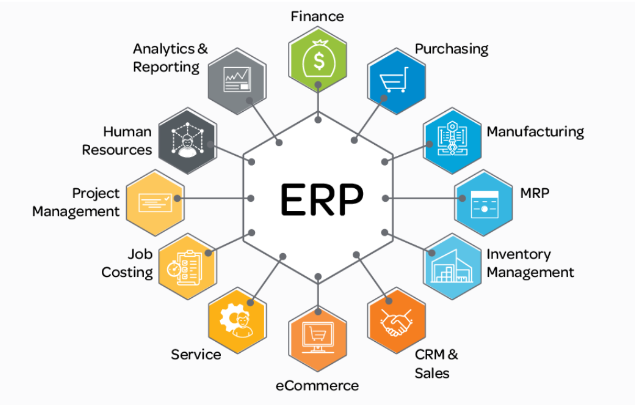Introduction:
In today’s digital age, businesses are constantly seeking ways to optimize their operations and enhance customer experiences. One significant strategy gaining momentum is the integration of a robust e-commerce system with an efficient Enterprise Resource Planning (ERP) solution. This powerful combination not only streamlines internal processes but also enables automated customer touch points and lead qualification through tailored funnels, pre-made email campaigns, and targeted social media flows. In this blog post, we will delve into the benefits of implementing such an integrated system and explore how it can revolutionize your business.
Enhanced Operational Efficiency:
Integrating an e-commerce system with a comprehensive ERP solution brings numerous benefits to your business operations. By synchronizing data across various departments, such as inventory, sales, finance, and customer service, you can eliminate manual data entry, reduce errors, and improve overall efficiency. With real-time visibility into inventory levels, order fulfillment, and financial transactions, you can make informed decisions, optimize stock management, and streamline logistics.
Seamless Customer Experience:
A good e-commerce system integrated with a powerful ERP allows for a seamless customer experience. With synchronized customer data, you can provide personalized recommendations, targeted promotions, and tailored offers based on their purchase history and preferences. This level of customization enhances customer satisfaction, fosters loyalty, and increases the likelihood of repeat purchases. Furthermore, integration enables real-time inventory updates, accurate product information, and efficient order processing, resulting in faster delivery and improved customer service.
Automated Customer Touch Points:
Gone are the days of manually managing customer touch points. An integrated e-commerce system and ERP offer automated ways to generate customer touch points throughout their journey. Through the use of marketing automation tools, you can create sales funnels that guide customers from initial interest to conversion. Pre-made email campaigns can be triggered based on customer behavior, ensuring timely and relevant communication. By leveraging social media flows, you can engage with customers, build brand awareness, and drive traffic to your e-commerce platform.
Effective Lead Qualification:
Lead qualification plays a vital role in optimizing sales efforts and maximizing conversion rates. An integrated system enables the implementation of lead qualification processes that are automated and efficient. By capturing customer data and tracking their interactions with your e-commerce platform, you can identify hot leads and prioritize your sales efforts accordingly. By utilizing pre-defined lead qualification criteria, you can automatically segment and score leads, allowing your sales team to focus on high-value opportunities.
Data-Driven Decision Making:
Integration between an e-commerce system and ERP provides a wealth of data that can fuel data-driven decision making. By harnessing this data, you can gain insights into customer behavior, sales trends, inventory performance, and more. These insights enable you to identify opportunities, optimize pricing strategies, and refine marketing campaigns. With a comprehensive view of your business operations, you can make informed decisions that drive growth and profitability.
Conclusion:
Implementing a good e-commerce system integrated with a powerful ERP can be a game-changer for businesses. From enhancing operational efficiency and providing a seamless customer experience to automating customer touch points and qualifying leads, the benefits are immense. Embracing this integration enables businesses to optimize their operations, foster customer engagement, and stay ahead in today’s competitive landscape. So, take the leap, integrate your systems, and unlock the true potential of your business.




